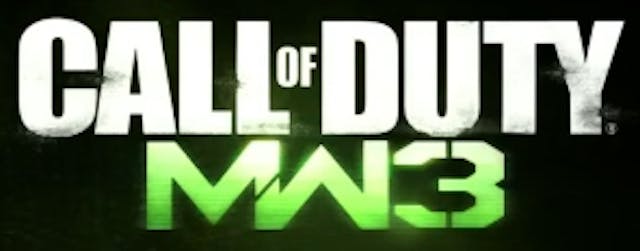
The Force isn’t with Planned Parenthood’s Star Wars tweet
Calvin Freiburger
·
Modern warfare 3 unashamedly preaches moral relativism to impressionable teens
Whether you’re a gamer or not, you probably know of the recent release of the latest game in the Call of Duty franchise, “Modern Warfare 3.”
Activision revealed last week that MW3 set sales records, selling more than 6.5 million units, just in North America and the UK.
Oh yeah, and that was just on opening day.

That’s 400 million in sales in one day. Bobby Kotick, CEO at Activision Blizzard, said, “We believe the launch of Call of Duty: Modern Warfare 3 is the biggest entertainment launch of all time in any medium, and we achieved this record with sales from only two territories.” Various estimates indicate that 16-19 million more units will be sold before the end of 2011.
Some of you may be surprised that I’m a pretty big Call of Duty fan. I wouldn’t recommend it for everyone, but it’s certainly one of the best first-person shooter games out there, and I enjoy playing with my friends. (Who are almost all a lot better than I am.)
Call of Duty is not without its controversies though, most infamously an optional level in Modern Warfare 2 where you play an undercover agent whose gained the trust of a terrorist group, and is forced to take part in a terrorist attack in an airport.
While that bothered me, I’m actually more concerned about the message being preached in the Modern Warfare 3 single-player campaign, which is hardcore moral relativism.
Let me set the scene. It’s the middle of World War 3. The U.S. eastern coast has been bombed to smithereens and London is about to see a massive chemical attack. After rescuing Washington D.C. early in the campaign, a cutscene plays. (A cutscene is a mini-movie in between levels that helps set the story, making you feel like you’re doing more than just shooting random waves of bad guys.)
Most cutscenes explain the context for the level you’re about to play, but this cutscene is an exception. Click the video below and watch the first 66 seconds to see for yourself, or read the transcript below.
[youtube http://www.youtube.com/watch?v=IGaZnZtOI_M&version=3&hl=en_US&rel=0]
They say truth is the first casualty of war.
But who defines what’s true?
Truth is just a matter of perspective.
The duty of every soldier is to protect the innocent, and sometimes that means preserving the lie of good and evil – that war isn’t just natural selection played out on a grand scale.
The only truth I’ve found is that the world we live in is a giant tinderbox.
All it takes is someone to light the match.
Just think of the implications of that message. If the difference between good and evil is just a lie and war is merely natural selection being played out, then we couldn’t say that it’s a “good” thing that the Nazi’s lost World War II! We couldn’t say that an evil group of people was vanquished. All we could say is that the Allies were more powerful.
End of story.
Not good or bad.
It’s just what happened.
Article continues below
Dear Reader,
In 2026, Live Action is heading straight where the battle is fiercest: college campuses.
We have a bold initiative to establish 100 Live Action campus chapters within the next year, and your partnership will make it a success!
Your support today will help train and equip young leaders, bring Live Action’s educational content into academic environments, host on-campus events and debates, and empower students to challenge the pro-abortion status quo with truth and compassion.
Invest in pro-life grassroots outreach and cultural formation with your TRIPLED year-end gift!
There’s irony in this. Many people that believe moral relativism to be “true,” (try to wrap your head around that one,) believe that the war in Iraq is unjust. They think President Bush went there for oil, or lied about WMD’s and/or a number of other charges. Some even protest the war. Now I haven’t done a lot of research into that particular issue, so I’m not defending either side here.
The point I want to make is that even if EVERY SINGLE ONE of those accusations were true, a relativist cannot say there is anything immoral happening in Iraq! It’s just natural selection playing out on a grand scale! We’re tougher, and there’s nothing moral or immoral about it.
To a relativist, all war is amoral, that is, something that is neither moral nor immoral. It just is. The relativist can have their personal preferences about war. They could say, “If I were President, I would prefer to do X,” but they can’t say that X is a more just action than Y.
In fact, they can’t say anything of substance about the justness of an action. All they can talk about are their personal preferences. Some relativists will go even farther and admit that they can’t state that sexually abusing a child is objectively wrong for everybody.
Click here to read about a conversation I had with a hardcore relativist, and how I handled it.
Why am I more concerned about that 60-second cutscene than the airport terrorism level from MW2? The first reason is because I’m not convinced that playing the airport level is going to send any kid into an actual shooting spree. According to a new book by a pair of Harvard researchers, playing video games does not turn children into deranged, blood-thirsty super-killers. The pair reached that conclusion after conducting a two-year study of more than 1,200 middle-school children about their attitudes towards video games. It makes sense, because according to FBI statistics, youth violence has declined in recent years as computer and video game popularity soared. There may be new evidence that comes out on the other side of this debate, and I’d be glad to look at it. In the end, I’m a big parents’ rights guy, so I think parents should be the ones making decisions about whether it’s wise for their child to play certain kinds of video games and for how long.
Ultimately, while I don’t think it’s helpful to a child’s psyche to play the MW2 airport terrorism level, I also don’t think it’s so damaging that playing it on its own is going to make a teen think it’s okay to kill people in an airport. However, I do believe that impressionable teens will hear the blatant relativism message in MW3 and think to themselves, “Yeah, that makes a lot of sense!” They’re already hearing that message from nearly everybody else right now. Being reinforced in a game that many will play for hundreds of hours is something that I think can make a significant impact on how that person thinks in the future.
What’s the takeaway here? If you were hoping for a call to boycott the game, you’ll be surprised. MW3 seems to be the best Call of Duty game yet as far as playability goes, but we need to be aware of what messages are being sent through different forms of media. When we watch a movie, we should be asking ourselves, “What message is this movie trying to communicate, and do I agree with it?” If you don’t agree with it, you can use the movie as a tool to start conversations. For example, I could easily start a dialogue with someone about moral relativism just by seeing that he is wearing an MW3 shirt.
If you’re a parent, you should be aware of the relativism message during MW3’s campaign so that you can sit down with your child and talk about it. That communication turns a game with a dangerous philosophical message into a great parenting opportunity.
Modern Warfare 3: It’s a great game injected with awful philosophy.
To learn more about dialoguing about moral relativism, read “Relativism: Feet Firmly Planted in Mid-Air” by Frank Beckwith and Greg Koukl.
Josh Brahm is the Director of Education at Right to Life of Central California’s Fresno/Madera office, and host of “Life Report: Pro-Life Talk | Real World Answers.” Get more of Josh’s unique perspectives on pro-life topics at www.ProLifePodcast.net.
Live Action News is pro-life news and commentary from a pro-life perspective.
Contact editor@liveaction.org for questions, corrections, or if you are seeking permission to reprint any Live Action News content.
Guest Articles: To submit a guest article to Live Action News, email editor@liveaction.org with an attached Word document of 800-1000 words. Please also attach any photos relevant to your submission if applicable. If your submission is accepted for publication, you will be notified within three weeks. Guest articles are not compensated (see our Open License Agreement). Thank you for your interest in Live Action News!

Calvin Freiburger
·
Opinion
Angeline Tan
·
Issues
Angeline Tan
·
Guest Column
Emily Berning
·
Opinion
Nancy Flanders
·
Opinion
Mark Wiltz
·
Issues
Josh Brahm
·
Human Rights
Josh Brahm
·
Issues
Josh Brahm
·
Analysis
Josh Brahm
·
Opinion
Josh Brahm
·